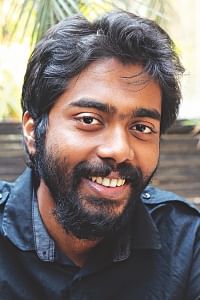Talking Images
Talking Images

From being a marketing student to a documentary photographer, Sarker Protick sets an example of how life can take a turn anywhere, anytime. By winning respectable awards like Prix Mark Grosset pour les écoles internationales de photographie and the World Bank Art Program, he has proven to be one of the most acclaimed young photographers in Bangladesh. In 2014, the British Journal of Photography selected him to be on the list of “Ones to watch.”

Sarker Protick's journey in photography began when he was at American International University (AIUB) with a 2 mega pixel cell phone camera. Around the same time, he began to study photography at the Pathshala-South Asian Media Academy. “I never planned to be a photographer," says Protick. "I was studying photography for a second diploma, which could be included in my CV. But the tables turned when my work was selected for the Pathshala monograph 'Under the Banyan Tree', a 12-year retrospective of the institution. That's when I realised that this is where I belong.”
Sarker Protick's work was exhibited at the Chobi Mela International Photography Festival, Noorderlicht Photo Festival, Photovisa Festival, Organ Vida Festival of Photography, Dhaka Art Summit, Tokyo month of Photography and Festival of Promenades Photographiques. He is now a lecturer at Pathshala, teaching portrait photography.
Sarker Protick has created an establishment through his incredible work, in the last few years. The documentary that first put him in the limelight was called “In Midnight Black”, a series of photographs which reflects Dhaka life at night-time. Yet another series, which was first exhibited at the Chobi Mela in 2013, titled 'What remains' is still remembered fondly by many. The photo documentary was about his grandparents, with an emphasis on their old age. “One of the main reasons I came up with this idea was basically to spend more time with my Dada (paternal grandfather) and Dida (paternal grandmother). Other than that, I wanted the series to reflect on the moment in life when one is moving towards the end and there is nothing to do but wait for the calling.” The documentary took a turn when Protick's grandmother died. But now he is planning to continue with the project focusing on his grandfather.